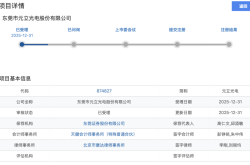"The Fifth Consumer Era: The Metaphor of the Battle for Internal Convolution Finally Reaching Video E-commerce"
![]() 09/04 2024
09/04 2024
![]() 438
438
"This article is based on publicly available information and is intended solely for the purpose of information exchange and does not constitute any investment advice."

"The verbal spat between Xinba and Xiao Yangge seems to be escalating, even showing signs of intensification. Behind this, various industry scandals continue to be exposed, making it clear that the battle for internal convolution in e-commerce and even retail has finally reached the forefront of business models: the short video sector."
"It cannot help but make one sigh at the insignificance of business models and individual will in the face of the vast tide of the times: Once a trend is formed, it will inexorably self-reinforce until it engulfs every corner, leaving no one untouched."
"In fact, reviewing this period of e-commerce's internal convolution from a phenomenological perspective reveals a crystal-clear evolutionary trajectory: Since 2023, with the decline of the stress-induced pulse growth caused by the pandemic and the continuous encroachment of video e-commerce, changes have first emerged from traditional e-commerce platforms:"
"1.0: Pinduoduo, with its foresight, embarked on an overseas market strategy, setting the stage for a competitive landscape with traditional e-commerce peers that has alternated between gains and losses on both strategic and economic fronts."
"2.0: Following this, JD.com and Taobao have continually questioned, understood, and imitated Pinduoduo's approach, reflecting and iterating until the current situation of returning to their core strengths and embarking on drastic reforms, gradually shaping a new balance."
"3.0: Pinduoduo's recent decision to proactively lower expectations can be seen as a sign of the traditional e-commerce competitive landscape evolving into a new stage of balance. This indicates that traditional e-commerce platforms have initially established defensive mechanisms against the cycle of internal convolution. Such logic also implies that the expansion of short video e-commerce has finally encountered a barrier."
"This 'barrier' is marked by the collective turmoil within the top MCN agencies in the short video e-commerce sector: from Dongfang Zhenxuan and Dong Yuhui to Xinba and Sanzhiyang Xiao Yangge, one era is drawing to a close, while another is just beginning."
"Who is ending? It goes without saying, each one knows their own warmth or cold. Who is beginning? Based on our tracking and insights, we symbolize it as: The Fifth Consumer Era. We have previously addressed this era in our first report, 'Prelude: The Fifth Consumer Era.'"
"This article will build upon the first report, delving deeper into the underlying significance of the key phenomena that have marked this recent period."
"01","What is Downward Penetration?"
"In the Fourth Consumer Era described by Miura Kenji, a key reflection is the rise of white-label products. Corresponding to this rise is the economic phenomenon known as 'market downward penetration.'"
"Undoubtedly, Pinduoduo, Kuaishou, Mixue Bingcheng, and Lvmama are among the pioneers who have capitalized on this trend, inherently catering to the lower-tier consumer base."
"In this process, learning from and replicating the success of Pinduoduo and Mixue Bingcheng has become a prominent business strategy."
"Gradually, we have seen numerous enterprises opting for pixel-perfect imitation, from pricing and white-label products to service policies, even in the face of incomprehensible business logic and elusive market spaces."
"However, in our view, most enterprises have only scratched the surface, much like their understanding of the emerging Fifth Consumer Era being limited to a few books by Miura Kenji."
"In reality, the fundamental question remains: What exactly is downward penetration? When it comes to short video content e-commerce and traditional shelf e-commerce, the pursuit of the lowest prices across the entire network is prevalent. On one hand, there is a belief that streamlining decision-making processes can maximize GMV; on the other hand, Pinduoduo has already validated the mainstream logic of low-cost expansion in the market."
"In contrast, most e-commerce brands often incur additional management and marketing costs in their quest for the lowest prices across the network. Furthermore, many e-commerce brands inherently follow a development strategy that progresses from low to high customer acquisition costs, a reverse shift that seems somewhat coerced by the market, with the perception that consumption downgrading is an inevitable stage of socio-economic development."
"However, revisiting the reasons behind the sharing economy and the pursuit of simplicity from within the frameworks of 'The Three Lows' and 'The Downwardly Mobile Society' reveals that the so-called shift in consumption attitudes is not about downgrading consumption per se, but rather the downgrading of unnecessary consumption and the granulation of demand."
"This concept may seem abstract, but the core idea is that consumers in the 'Downwardly Mobile Society' (a term coined by Miura Kenji to describe Japanese economic phenomena, analogous to the Chinese context of 'lying flat' outside the five-ring road) are forced to confront environmental burdens (blocked career advancement and stagnant incomes), continually reducing consumption, living costs, and building costs, without sacrificing their pursuit of a rich and varied life."
"To gain and retain, the prerequisite is the refinement of supply chains and the infinite dissection of demand."
"For instance, if you need an S-sized wrench to fix your computer and only need it once, you might typically purchase a full set of tools, the cheapest of which costs 19.9 yuan. But if a merchant sells you a plastic S-sized wrench for 1.99 yuan, including shipping, would you really care about the wrench's appearance when you only need it for a one-time fix? Functionality is key."
"This is the logic of demand granulation and the core rationale behind our emphasis on competition in downward penetration: the ability to discover prices, serve the broadest range of people, match the broadest supply to demand, and form the most reasonable prices."
"In the Fifth Consumer Era, what the supply side lacks is not a toolbox for 19.9 yuan, but an S-sized wrench."
"Whether it's content-based e-commerce or shelf e-commerce, the core theme of the past year has been low prices."
"Regarding 'low prices,' our ongoing research on consumer trends across different markets has led to a conclusion: Matching extensive supply with the most refined demand to achieve relatively lower and reasonable costs for satisfying those demands."
"If we consider the shift in consumption trends as a norm, there is another consideration for e-commerce platforms: How to achieve optimal efficiency matching to ensure the sustainability of reasonably priced supply."
"A crucial question arises: Who bears the cost of low prices?"
"Addressing this proposition requires extensive data retrospection, statistics, and calculations, which we will explore in a subsequent research report."
"For now, let's skip the research process and jump straight to the conclusion:"
"Under the high-dimensional technological dominance of short video content e-commerce, only Pinduoduo seems to remain unscathed. The essential reason lies in its lowest operational costs for merchants, as its revenue does not rely on traffic acquisition fees from top merchants like other e-commerce platforms, thus eliminating the need to drive up customer acquisition costs on the supply side."
"Compared to the one-on-one cost reductions in content-based e-commerce, the seasonal cost reductions or so-called procurement and sales cost reductions in traditional shelf e-commerce lack sustainability."
"02","What is Service?"
"The Fourth Consumer Era elaborated on the shift in consumption attitudes from materialism to service-orientation, as explained in Miura Kenji's trilogy on consumption attitudes. The core driving force behind Japanese consumption attitudes, particularly after entering the Fourth Consumer Era, has undergone a transformation from materialism to humanism, a feature that has become increasingly pronounced in the post-pandemic era. Consumers are increasingly prioritizing aspects of life over mere wealth accumulation."
"This is also one of the core characteristics of entering the Fifth Consumer Era."
"For consumers, the shift from materialism to humanism signifies a change in the fulfillment of consumer behavior from singular material satisfaction to self-enrichment satisfaction."
"Bubble consumption has been prolonged by the rapid economic growth, but as Schopenhauer observed, desire fulfillment is often followed by an endless void. When fatigue sets in from wasteful consumption, consumers seek new meanings, whether it's the satisfaction of honor or happiness."
"Taking the revitalization of domestic product consumption, a ubiquitous phenomenon in both Japan and China during the Fourth Consumer Era, as an example:"
"In Miura Kenji's narrative, the rise of Japanese domestic products stems from a generation that has 'lost their hometown,' experiencing wandering, economic stagnation, and a sense of living abroad. This has strengthened their sense of identity."
"In our view, the rise of domestic products in the Chinese market encompasses two layers of meaning:"
"Firstly, building upon the aforementioned logic of low-cost consumption, domestic products, whether established brands or white-label products, rely on China's robust manufacturing capabilities to excel in functionality, simplicity, and practicality compared to imported goods. Simultaneously, the prices of most products are more affordable, aligning with the consumption attitudes of the Fourth and Fifth Consumer Eras."
"Secondly, domestic products must tell a story of belonging. In 'The Lonely Society,' Miura Kenji devotes significant space to explaining the meaning of consumption, with the core message being that consumption seeks process satisfaction, whose meaning varies at different stages."
"Taking Japan as an example, the two peaks of domestic product rise are characterized by different era features: the difficulty in demonstrating middle-class status through consumption and the collapse of the fictional era (marked by economic bubbles proclaiming the purchase of the United States), including the loss of Japan's position as the world's second-largest economy."
"The underlying implication is the reduction in conspicuous consumption and the desire for greater self-recognition. Japanese consumers and the country itself are in the same historical cycle: unable to break through bottlenecks through their own efforts, with upward mobility blocked."
"For Japanese consumers at that time, supporting domestic products compensated for the emptiness caused by economic decline and the decline in national status. Additionally, consuming these products signified recognition of one's own work value, with the latter being the core."
"When discussing the rise of domestic products, most consumer goods and platforms often overlook the sense of identity and belonging among consumers, focusing solely on pride. While it is understandable to prioritize pride, neglecting consumer identity and belonging values is a missed opportunity."
"A brand that boasts superior product capabilities and craftsmanship may not necessarily win over consumers. However, a brand that overlooks consumer value recognition (such as last year's controversial 'not working hard' incident) will surely be abandoned by consumers."
"For e-commerce platforms, understanding the true service that consumers in the Fifth Consumer Era require is respect."
"For consumers in this era, the essence of service is respect, and the best manifestation of respect is anticipating and addressing their concerns. By giving respect and understanding, platforms can occupy consumers' minds for an extended period."
"In the past, whenever e-commerce platforms touted consumer-centricity, there was often a sense of disappointment, akin to 'trying to relive one's youth by buying osmanthus wine.'"
"The root cause lies in the fundamental difference between profit models centered on consumers and those centered on merchants. Asking a platform profiting from merchants to emulate one focused on consumers is like expecting a duck to lay eggs; it simply doesn't work."
"Against this backdrop, the logic behind why 'C2M,' 'low prices,' 'billions in subsidies,' and 'money-back guarantees' have gradually become competitive differentiators in different eras becomes clear: In the face of competition, the biggest rival is not others but oneself, losing touch with the times."
"02","What is Going Global?"
"There has always been a narrative in the market that cycles create success, with some platforms merely riding the wave of consumption classification (a term referring to different levels or tiers of consumption). If the economic cycle reverses, e-commerce platforms will face a new round of reshuffling, and even new dark horses may emerge."
"The core logic, as expressed by Miura Kenji in 'The Lonely Society,' states:","'"Ten years ago, young people barely experienced the aftertaste of the bubble period during their childhood, so simplicity allowed them to feel a new value in life. However, today's young people have only experienced the Lost Thirty Years, and their lives are already simple. Therefore, they are unlikely to seek further simplicity but may instead yearn for the lifestyle of the bubble economy.'"
"If we solely consider consumption cycles, no internet or retail enterprise possesses long-term investment value due to the inevitability of cyclical fluctuations. Yet, companies like Amazon and Walmart have achieved longevity."
"The crux is not whether a company perfectly aligns with a specific cycle but why it can match that cycle."
"The rise of Pinduoduo occurred during a period when competitors struggled to find rivals, even with a telescope. Nevertheless, it turned out that recognizing the oversupply and unsatisfied demand in the markets beyond the fifth ring road was sufficient to build a trillion-yuan enterprise."
"Furthermore, while all enterprises were exploring trends in the Japanese consumer market and seeking survival amidst internal competition, Pinduoduo directly followed the ultimate path of Japanese enterprise development: going global."
"From a temporal perspective, Pinduoduo was not the first domestic e-commerce platform to venture overseas. However, the overseas market it targeted is among the top two largest single markets globally, which many internet giants have avoided. TEMU's impressive performance proves that going global doesn't necessarily mean targeting low-dimensional markets like Southeast Asia or Africa; even in the United States, our supply chain and manufacturing advantages are evident."
"If one intends to pan for gold, why not go where the money is most abundant? Is it a lack of confidence or an inability to recognize one's own capabilities? In our view, it stems from the top-down thinking of large enterprises, fear of failure, and the desire to achieve minimal success at minimal cost, maintaining unwarranted and valueless titles."
"Diamond's 'Guns, Germs, and Steel: The Fates of Human Societies' offers profound insights: The reason why Eurasian civilizations ultimately survived and prevailed over others is not due to racial superiority but rather the advantages brought about by environmental factors, leading to the dominance of agrarian civilizations. Settlement, population density, and optimized social division of labor have freed up substantial labor for tasks unrelated to subsistence, such as technology and cultural inheritance, thereby creating insurmountable advantages."
"During the mobile internet era, the rise of various players relied on new infrastructure and technological iterations, fueled by the foresight of individuals and entrepreneurs. As technology stagnates and markets saturate, enterprises that achieve longevity, from Procter & Gamble to Nintendo, Volkswagen to Tesla, possess a far-reaching vision aligned with the times and foster internal environments that maintain efficient, stable development while preserving an entrepreneurial spirit. Even in the face of different cycles and markets, they can make decisions that best align with the characteristics and historical trends of the times."
"This also explains why, despite facing different cycles—low prices, consumer service, and going global—some can maintain logical consistency, while others inevitably lose their footing. For instance, even though short video e-commerce boasts relatively high-dimensional technology and business models, it is still difficult to remain unscathed in the face of the vast tide of the times."
"The spread of internal convolution to so-called era darlings like Dongfang Zhenxuan, Dong Yuhui, Lao Luo, Xinba, and Xiao Yangge serves as irrefutable evidence."
"The grand trend of the world is vast and unstoppable; those who follow it will prosper, while those who resist will perish."
"Fortunately, the historical prologue of the Fifth Consumer Era has just begun, and the exciting new opportunities it brings belong to everyone."






